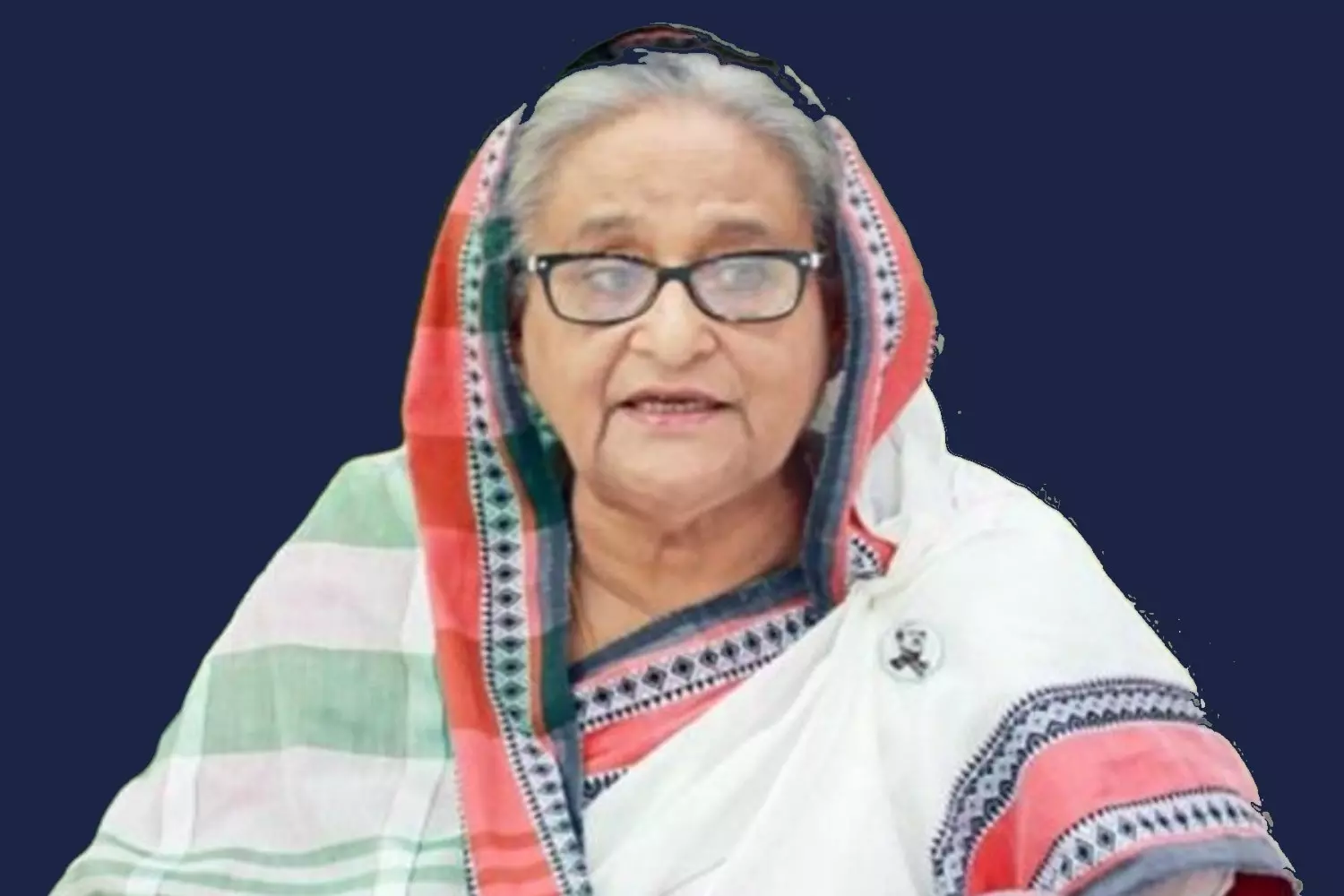
Sheikh Hasina death sentence: Can India refuse extradition? What treaty says
Since her government was toppled on August 5 last year, Hasina has been living in India

Bangladesh’s interim government has urged India to immediately extradite its deposed Prime Minister Sheikh Hasina who was on Monday (November 17) sentenced to death in absentia for "crimes against humanity".
The verdict against 78-year-old Awami League leader Hasina was delivered by Bangladesh's International Crimes Tribunal (ICT) over her government's brutal crackdown on student-led protests last year.
Also read: Bangladesh court sentences Sheikh Hasina to death
Since her government was toppled on August 5 last year, Hasina has been living in India.
Extradition request
On Monday, ICT also handed the death sentence to former home minister Asaduzzaman Khan Kamal on similar charges.
Bangladesh’s Foreign Ministry said, "We urge the Indian government to immediately hand over these two convicted individuals to the Bangladeshi authorities."
Also read: China calls Sheikh Hasina's death sentence Bangladesh’s ‘internal affair’
“This is also a duty for India, as per the extradition treaty existing between the two countries,” it added.
Further, it said, “It would be an extremely unfriendly act and a contempt for justice if any other country were to grant asylum to these individuals convicted of crimes against humanity.”
India’s reaction to Hasina verdict
Reacting to Hasina’s verdict, the Ministry of External Affairs (MEA) did not comment on the call for extradition but said India remains committed to the best interests of the people of Bangladesh.
"India has noted the verdict announced by the 'International Crimes Tribunal of Bangladesh' concerning former prime minister Sheikh Hasina," the ministry said.
Also read: Bangladesh warns media against reporting Sheikh Hasina’s statements
"As a close neighbour, India remains committed to the best interests of the people of Bangladesh, including peace, democracy, inclusion and stability in that country. We will always engage constructively with all stakeholders to that end," it added.
What India-Bangladesh extradition treaty says
In 2013, India and Bangladesh signed an extradition treaty for reciprocal extradition of offenders and recognising that concrete steps are necessary to combat terrorism.
As per the treaty, an extradition offence is the one which is punishable by a term of imprisonment for a period of at least one year.
Also read: Sheikh Hasina's extradition: Why is India in a tricky situation?
“Extradition shall also be granted is respect of an attempt to commit or aiding, abetting, inciting or participating as an accomplice in the commission of an extraditable offence,” Article 2 of the treaty states.
However, extradition can be refused if the offence is of “political character”.
As per Article 6 of the treaty, “Extradition may be refused if the offence of which it is requested is an offence of a political character.”
Article 6(2) states that serious offences like terrorism, murder, manslaughter or culpable homicide, kidnapping, incitement to murder, firearm possession are not considered political.
ICT has described Hasina as the "mastermind and principal architect" of the violent repression that killed hundreds of protesters.
Can India refuse extradition?
India is unlikely to extradite Hasina. As per Article 8 of the treaty that deals with grounds for refusal of extradition, if the request for extradition is “unjust or oppressive”, it can be denied.
Other grounds for refusal of extradition include “trivial nature of the offence”, the accusation “not having been made in good faith in the interests of justice” or “accused or convicted is a military offence which is not also an offence under the general criminal law”.
Also, an extradition request can be denied if India can prosecute the accused.
“The request for extradition may be refused by the Requested State if the person whose extradition is sought may be tried for the extradition offence in the courts of that State,” as per Article 7 that deals with “Extradition and Prosecution”.

